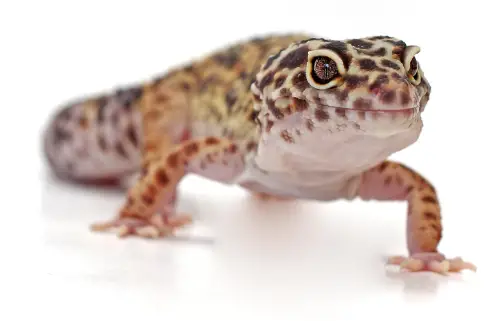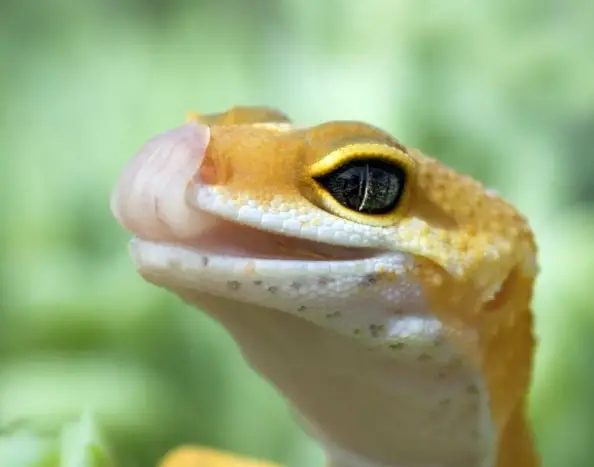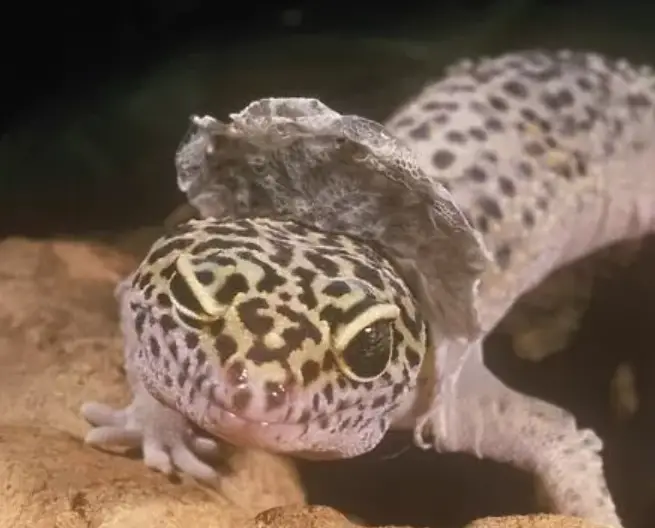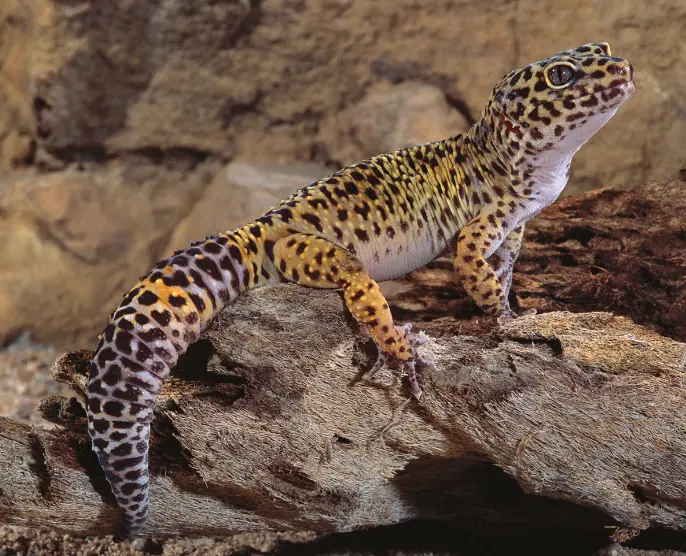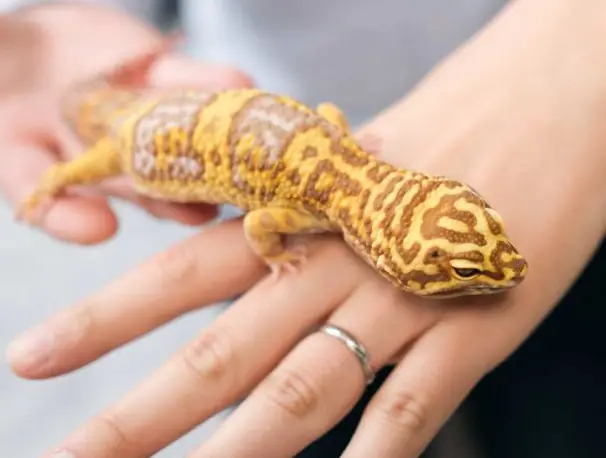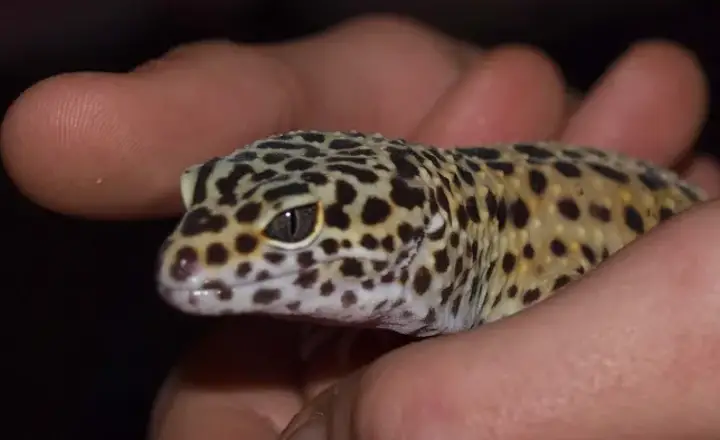Leopard geckos can be affected by a variety of parasites, including mites, ticks, intestinal worms, and protozoans. If left untreated, these parasites can cause serious health problems and even death. Fortunately, there are ways to treat and prevent parasitic infections in leopard geckos. In this article, we’ll discuss the different types of parasites that can affect these reptiles and how to treat them.
What are the types of parasites that affect leopard geckos?
There are several types of parasites that can affect leopard geckos, including:
Mites: These tiny arachnids are external parasites that can infest a gecko’s skin and cause irritation, itching, and even skin infections.
Ticks: Similar to mites, ticks are external parasites that can infest the skin of a gecko and cause discomfort and irritation.
Intestinal worms: These are parasitic worms that can infest the digestive tract of a gecko and cause weight loss, diarrhea, and other digestive problems.
Protozoans: These are microscopic organisms that can infect a gecko’s blood, organs, or other tissues and cause a range of symptoms, including weakness, lethargy, and loss of appetite.
How do leopard geckos get parasites?
Leopard geckos can get parasites in a number of ways, including:
Contact with infected animals: If a leopard gecko comes into contact with another gecko or other animal that is infected with parasites, they can spread to the unaffected gecko.
Poor hygiene: Geckos that are kept in dirty or unsanitary habitats are more likely to contract parasites.
Contaminated food and water: If a gecko eats contaminated food or drinks contaminated water, they can become infected with parasites.
What are the symptoms of parasitic infections in leopard geckos?
The symptoms of parasitic infections in leopard geckos can vary depending on the type of parasite and the severity of the infection. Some common symptoms include:
Skin irritation and itching
Loss of appetite
Weight loss
Diarrhea
Dehydration
Lethargy
Weakness
Difficulty breathing
Irregular shedding
How can I prevent my leopard gecko from getting parasites?
There are several things you can do to help prevent your leopard gecko from getting parasites, including:
Keeping their habitat clean and sanitized. Make sure to clean their habitat daily and replace water regularly to prevent bacterial growth.
Quarantine new geckos. If you’re introducing a new leopard gecko to your collection, always quarantine them for at least 30 days to ensure they’re healthy and not carrying any parasites.
Feed them a healthy diet. A healthy diet rich in vitamins and minerals can help keep your gecko’s immune system strong and prevent the onset of parasitic infections.
How do I know if my leopard gecko has parasites?
If you notice any of the symptoms mentioned above, it’s important to take your leopard gecko to a veterinarian who specializes in reptiles. They can perform a thorough exam and diagnose any parasitic infections.
What treatments are available for parasitic infections in leopard geckos?
The type of treatment will depend on the specific type of parasite and the severity of the infection. Some common treatments include:
Medications: Depending on the severity of the infection, your veterinarian may prescribe medication to help treat the parasites.
Isopto tears: This is a medication that can be used to treat mites and ticks. It helps keep their eyes moisturized and prevents them from becoming dehydrated.
Insecticide dips: These dips can be used to kill mites and ticks that are infesting a gecko’s skin.
Can I treat parasitic infections in my leopard gecko at home?
While there are some over-the-counter medications that can be used to treat certain types of parasitic infections in leopard geckos, it’s always best to consult with a veterinarian before starting treatment. This will ensure that the proper diagnosis is made and the most effective treatment plan is put in place.
How long will it take for my leopard gecko to recover from a parasitic infection?
The length of recovery time will depend on the severity of the infection and the type of treatment used. In some cases, it may take several weeks for a gecko to fully recover from a parasitic infection.
What can I do to help my leopard gecko recover from a parasitic infection?
After your gecko has been treated for a parasitic infection, it’s important to provide them with proper care to help speed up their recovery. This includes:
Providing a warm and comfortable habitat
Offering plenty of fresh water and nutritious food
Keeping the habitat clean and sanitized to prevent reinfection
Regularly monitoring your gecko’s health and behavior
How can I prevent my leopard gecko from getting reinfected with parasites?
To prevent reinfection, it’s important to continue practicing good hygiene and sanitation habits, as well as taking your gecko in for regular check-ups with a veterinarian. Additionally, you should avoid contact with animals that may be infected with parasites and always quarantine new geckos before introducing them to your collection. With proper care and treatment, your leopard gecko can recover from parasitic infections and enjoy a healthy, long life.
Conclusion
In conclusion, treating a leopard gecko with parasites requires a combination of proper husbandry, appropriate medication, and regular veterinary check-ups. It is essential to maintain a clean and hygienic environment for your pet, including regular cleaning of their enclosure and avoiding overcrowding. Additionally, choosing the right medication and administering it correctly is crucial for successful treatment. Consult with a reptile veterinarian for a proper diagnosis and treatment plan, as some medications may be harmful to your gecko if not used correctly. With proper care and treatment, your leopard gecko can recover from parasites and live a healthy, happy life. Remember, prevention is always better than cure, so be sure to maintain proper hygiene and regular vet check-ups to keep your leopard gecko parasite-free.
